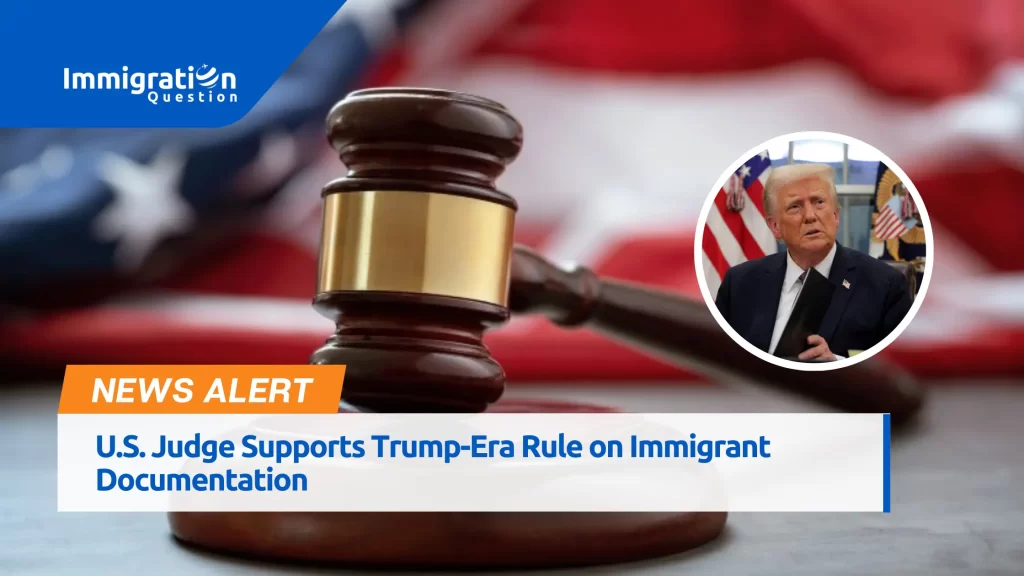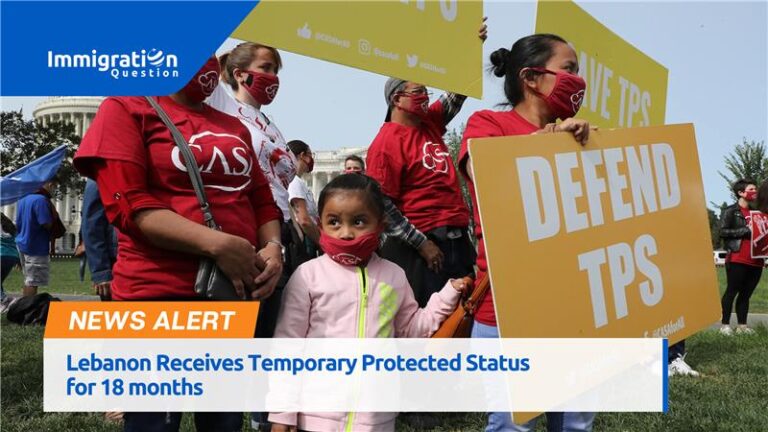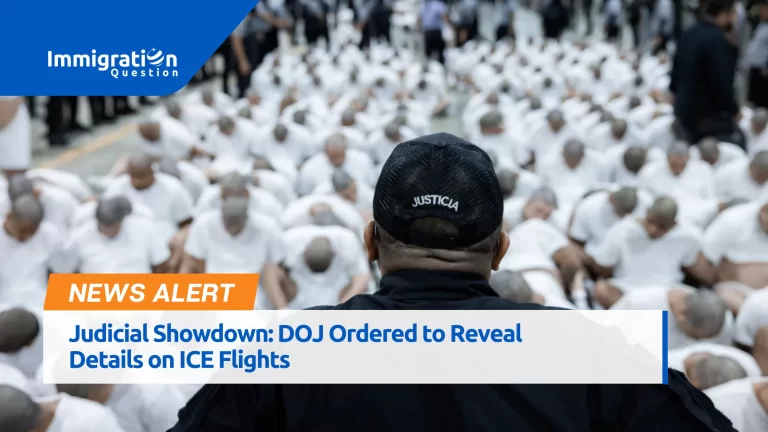A federal judge has cleared the path for a controversial Trump administration immigration measure to take effect. The regulation mandates that every undocumented individual in the United States must register with the federal government and carry documentation proving their registration status. The ruling came on Thursday, just one day before the policy’s enforcement date.
Judge Trevor Neil McFadden, appointed during Donald Trump’s previous presidency, presided over the case. His decision was rooted in procedural grounds, specifically determining that the organizations challenging the measure did not have the legal standing to pursue the lawsuit. As a result, he did not address the broader constitutional or humanitarian arguments raised by advocacy groups.
Enforcement Timeline and Government Directive
The Department of Homeland Security (DHS) swiftly responded to the ruling by reiterating that registration for individuals who have been in the country for more than 30 days becomes compulsory starting Friday. Going forward, the requirement will be enforced without exception. Individuals found noncompliant could face significant penalties, including criminal charges, fines, and imprisonment.
People aged 14 and older who lack legal immigration status are expected to provide personal data such as fingerprints and current addresses during registration. Parents or guardians of minors under the age of 14 must ensure the registration of their dependents.
Notably, this rule also applies to Canadians in the U.S. for more than 30 days—particularly targeting seasonal residents, often referred to as “snowbirds,” who typically spend winter months in states like Florida.
Legal and Historical Context
The Trump administration has argued that this requirement is not new but rather an enforcement of longstanding immigration law. They point to statutes such as the Immigration and Nationality Act of 1952 and the earlier Alien Registration Act of 1940, which have always included provisions for noncitizens to register with the federal government. However, these requirements have rarely been applied in recent decades.
One of the few instances of similar enforcement occurred post-9/11 through the National Security Entry-Exit Registration System (NSEERS). This program targeted male noncitizens from 25 primarily Muslim-majority countries, leading to over 13,000 deportation proceedings but no terrorism-related convictions. NSEERS was discontinued in 2011 and formally dismantled in 2016.
Critics and Legal Challenges
Despite the administration’s legal rationale, civil rights groups and immigration advocates have voiced significant concerns. Organizations like the National Immigration Law Center argue that the policy is a thinly veiled attempt to support mass deportation efforts. Critics say it forces undocumented individuals into a dire choice—either register and potentially expose themselves to removal, or risk criminal charges by remaining hidden.
These groups also contend that the administration bypassed essential regulatory steps, such as a formal public comment period, before rolling out such a sweeping policy change. The sudden enforcement, they warn, undermines public trust and places immigrant communities under intense stress.
Community Impact and Human Cost
If fully enforced, the registration requirement could affect between 2.2 million and 3.2 million undocumented individuals currently residing in the United States. Many of these individuals have lived in the country for years, contributing to local economies and maintaining deep familial and community ties. Now, they face new layers of legal jeopardy.
Advocates stress that the decision to register will not come easy for many. For some, complying could mean increased vulnerability to immigration enforcement. For others, failure to register may result in criminal prosecution. Immigration attorneys are urging community members to seek legal advice to better understand the implications of their choices.
Looking Ahead – U.S. Judge Supports Trump-Era Rule on Immigrant Documentation
As the policy takes effect, immigration advocacy groups are considering their next legal steps, potentially pursuing appeals or alternative legal avenues to challenge the rule’s enforcement. Meanwhile, the Trump administration is making clear that it views this registration measure as a critical component of its broader immigration agenda, which includes large-scale removals and tightened border controls.
Legal experts and civil liberties organizations will likely continue to scrutinize both the legality and the human impact of this renewed enforcement. In the coming weeks, the country may witness increased legal challenges, community organizing, and heightened tensions between undocumented populations and federal agencies.
Whether this policy endures or is eventually overturned, it signals a return to more aggressive immigration enforcement tactics and adds another chapter to the ongoing debate about immigration reform, national security, and human rights in the United States.
To stay updated and informed, watch our news section or drop your immigration questions on immigrationquestion.com and get responses from professional attorneys.










